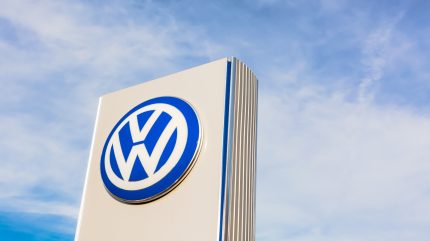
Volkswagen is examining various cost-cutting strategies for its main brand, which includes a 10% wage reduction and a two-year wage freeze, reported by Reuters, citing Handelsblatt news report.
The automotive giant is seeking to save €4bn ($4.3bn) in response to the increasing need to slash expenses during tough economic times.

Discover B2B Marketing That Performs
Combine business intelligence and editorial excellence to reach engaged professionals across 36 leading media platforms.
Handelsblatt report has revealed that the company’s leadership is deliberating on a number of potential cost-saving moves.
Among these are limitations on bonuses for high-level employees, reductions in additional payments for employee anniversaries, and the potential closure of some production sites in Germany.
A Volkswagen spokesperson has declined to comment on the ongoing discussions with the company’s works council and the IG Metall union, a metal workers union.
Since the beginning of October, Volkswagen’s management has been in weekly meetings with worker representatives from its German plants.
These discussions focus on identifying areas for potential cost reductions and deciding which models to be produced at each location.
A union spokesperson has clarified that negotiations regarding wage increases are conducted separately, with the next round of formal discussions scheduled for 30 October.
In a significant move, Volkswagen Group announced in September 2024 the termination of labour agreements in Germany, a decision that could lead to job cuts across six plants as part of the cost-cutting initiative.
Several media reports state that the company has notified the IG Metall union about the cessation of several labour agreements, including one that ensures employment at these six plants until 2029.
During the same month, Volkswagen Group entered into a partnership with Thyssenkrupp Steel at the International Suppliers Fair (IZB) in Wolfsburg, Germany.
They signed a memorandum of understanding (MoU) for the supply of low-carbon steel starting in 2028.
The steel will be obtained from Thyssenkrupp’s upcoming direct reduction plant, set to begin operations in 2027. This facility will use hydrogen and green electricity to produce bluemint steel, resulting in a significant reduction in carbon emissions.






